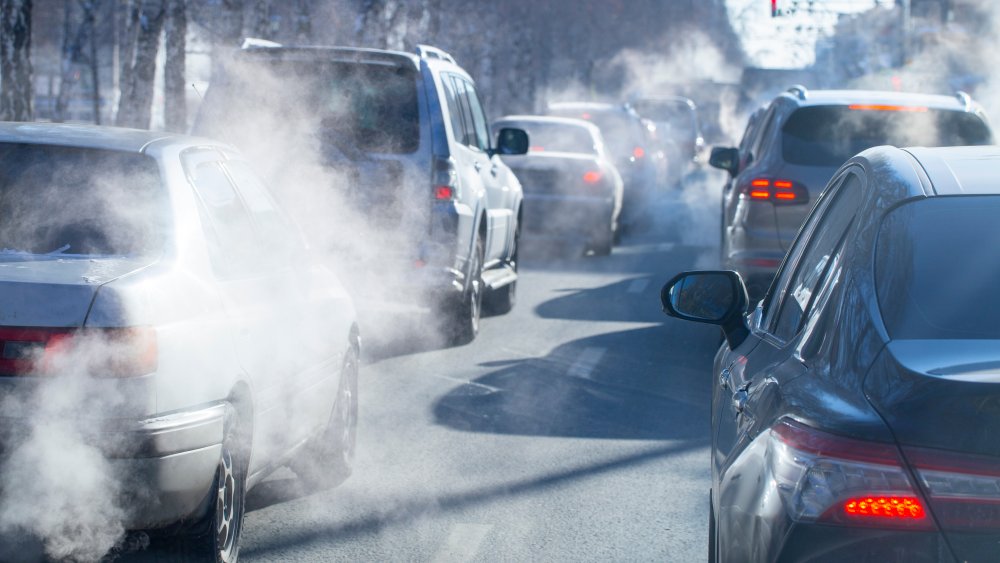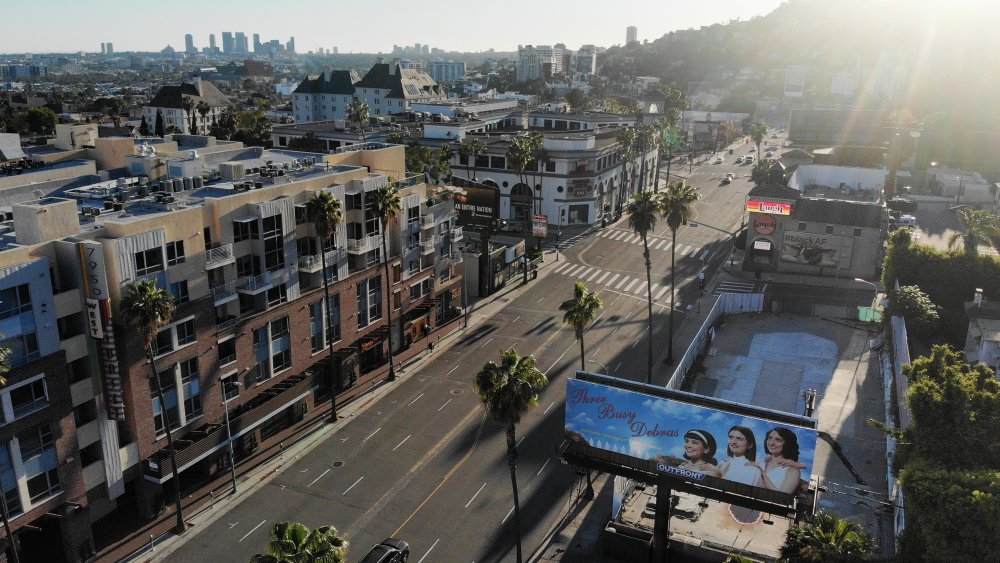The Truth About The Pandemic's Effect On Air Quality
Business Insider writes that in April 2020, US oil prices plunged below zero bucks a barrel for the first time in history, reaching as low as negative-$40.32 at one point. You think that means free gas, but no. The real significance is that demand for gasoline hit rock bottom and kept on digging due to widespread coronavirus lockdowns. In India alone, more than 1.3 billion were ordered to stay home in March, via NPR, leading to a precipitous drop in crop burning and driving. Within weeks, India's ominous smog lifted, and citizens could see the Himalayas for the first time in about 30 years.
Per the Verge, the Swiss company IQAir assed the air quality of 10 major cities across the world and observed huge pollution decreases in all but one. Compared to the same time in the previous year, Delhi, India clocked a 60 percent drop in air pollution. Seoul, South Korea, experienced a 54 percent decrease. Other cities analyzed include New York, Milan, Mumbai, London, and Los Angeles.
One city, Rome, actually experienced a spike in air pollution, possibly because of the heating system. So when in Rome, do as those other cities do. Whatever you do, know that reducing air pollution in the long term wouldn't just give you a view of Everest or whatever. It has health far-reaching health implications.
Throw your lungs a bone
Despite not having a skeleton, air pollution might be bad to the bone and not in a "George Thorogood and the Destroyers" sort of way. The Barcelona Institute for Global Health conducted a study in conjunction with the National Institute of Nutrition in India and the London School of Hygiene and Tropical Medicine which found that higher air pollution correlated with lower bone mass among more than 3,700 people from 28 villages in southern India. But whether or not airborne pollution is thoroughly bad for your bones, it's definitely b-b-b-b-bad for your health.
Per a 2019 UN press release, an estimated 7 million people worldwide die from air pollution every year. That same year, US News and World Report summarized the findings of a study published in the Proceedings of the National Academy of Sciences which concluded that unclean air kills 100,000 U.S. residents yearly. As if that wasn't bad enough, contracting COVID-19 makes things worse. According to researchers at Harvard University, "A small increase in long-term exposure to [particulate matter in the air] leads to a large increase in the COVID-19 death rate." Clean isn't just a boon for beleaguered lungs. It might also improve the survival rate for people infected during the pandemic.

